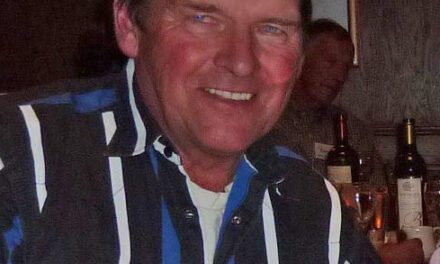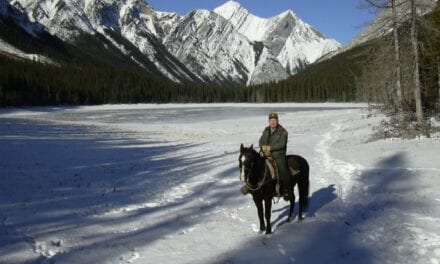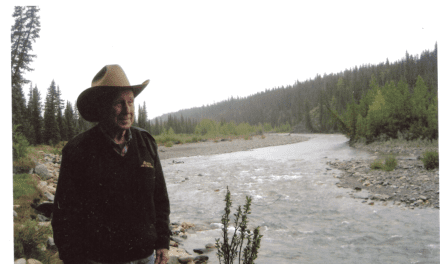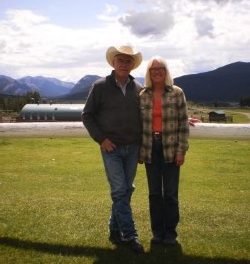MH: What about the Warden Service was important to you?
TS: I saw the Warden Service as the main player for protecting and preserving parks. You often have to collect data or analyze or write reports or environmental assessments, and have the knowledge to be able to make the argument for protecting the National Parks. We also got to do some specialized research projects or develop new techniques. For example, the Warden Service developed the heli-sling process and that was a very specialized technique. The Warden Service sort of was the figurehead for the National Parks. There was lots of support staff that definitely helped run the place, but the Warden Service was in the public’s eye. It needed to be professional, act good and look good.
MH: Are there any legendary characters or stories associated with the Warden Service that you can share?
TS: With that many people, there’s lots of different personalities and by and large, most of the guys worked as a team and got along well. They worked together and they also socialized together.
One of the older characters that I remember was Jay Morten who worked in Banff National Park in 70’s. Jay was quite smart and a good musician but he enjoyed alcohol a bit too much and at one point, he was banished to Saskatchewan Crossing warden station by the Chief Park Warden because he ran into trouble when in town. There was 6-day public safety school organized by Peter Fuhrmann on the Wapta Icefields. Peter was always known for bringing lots of heavy food on trips, meaning heavy packs. They started off skiing from the roadside. Everybody’s helping each other with getting their packs on. A couple of guys helped Jay Morton with his pack. He was complaining about how heavy it was. Everybody else was saying well,” they’re all the same, they all weigh lots. We don’t like it, but every day it’ll get lighter.” Jay was a little out of shape and did not ski that well so he was really tired and he fell down a couple of times. People would help him back up and help him get his pack back on. And then finally, at lunch, Jay dug into his backpack and he found a railroad tie that had been put into his backpack by a fellow warden.
Oh, I could tell a Ron Leblanc story I guess. So Ron was known as a guy that played a lot of pranks on people. His hot spoon trick, I’m sure everyone who has been around him has scars on their wrist. It was a ski trip and it was back in the day when you could sign up to go to a backcountry cabin on your days off and it would be fine, as long as there was one or two Park Wardens involved in it. It was New Years Eve and we were at Flint’s Park Warden Cabin with Ron and his girlfriend, myself and Dorothy Wray who was a dispatcher in Banff, Blair Fyten and his wife at the time, Cliff and Joanne White and Chris Worobets. We were having a few drinks to celebrate. The waterhole for the drinking water was an overflow area out in the creek maybe 75 yards away and there was a trail out there and the guys had been bringing in the water during the day and then we finally said, “Well you girls, it’s your turn to go get the water.” So Dorothy and another gal went out to get the water. Ron and Blair snuck out and hid in the bushes near the water source and when the girls are coming back with the water the guys scared them by growling. The girls shrieked and they just threw the pails of water into the bushes right where the guys were lying down and got the guys very wet.
MH: Is there anyone from the Service that stands out in your mind?
MH: Is there anything about the Warden Service, as you knew it, that you would like future generations to know?
TS: Develop your talents and specialize in what you enjoy but know enough about the generalities of the operations so that you can still contribute. Don’t be afraid to try new things or think outside the box and test things out. I always thought that one of the best assets you have is your fellow Warden Service team members. If you bounce ideas off them, or you may have two parts to the puzzle and make the solution good and they’ll come up with a couple other key ingredients to it. That was what I always thought worked so well for the Park Wardens.
MH: What made the Warden Service such a unique organization?
TS: There again, it was the team approach. You had to be able to do all the day to day jobs and trade them off if you weren’t available. But then there were occasions when you needed to rise up to meet the big challenges with a good team and a variety of experiences. You generally could work your way through it and have it come out successful. There was enough work variety that people stayed motivated and eager to respond when called upon. There were situations, quite a few, where you depended on your fellow worker for your life so it builds a bond that is a lot stronger than some other more straightforward work situations.
MH: Do you have any lasting memories as a Warden?
TS: Not a favorite park or cabin or horse. They are all great, there’s tons of adventures and lots of opportunities to explore. There is little idiosyncrasies that I had picked up and used for my whole life. Dale Loewen who was supervisor in Lake Louise, he always backed his vehicle into his parking spot and then walked into the office (we drove in forward). After a while, we finally clued in that you may not be in a rush when you get to the office, but there might be a chance that you have to go to a highway accident or a rescue or a wildlife situation, and you might be in a rush to get out of the office. It’s just a lot easier and a lot less stressful to be parked in the right direction to go to the incident. So that was one and another one was, we worked with the RCMP a fair bit, in Lake Louise, and sometimes we would do patrols or a ride along with them and pick their brains, or they’d pick your brain. One of the ones that stuck with me was one of the officers said, “you’re traveling on the highway and the traffic can bunch up and that is not a good situation to be in. He said he’d rather go faster or slower than the traffic flow. If you’re on the road by yourself and something goes wrong, you just respond. You have more alternatives to go with rather than you don’t have to figure out what your fellow drivers are doing in front of you and behind you before taking evasive action.
There was the gun safety issues and we were doing longarm training and stuff like that back in the 1980s. It was primarily for bear safety at that time. We bought a bunch of .22 calibre rifles for the Warden Service so that we could practice with them so that we would have the mechanics down for proper shooting techniques. In Lake Louise we’d often go out for an hour of practice, Gord Irwin, Ian Syme, Dave Norcross and myself were involved in it. We would shoot with the .22s at a bull’s eye target and you’d have to score up your target sheet. The loser would have to buy lunch at the Post Hotel. I kept losing these shooting contests and having to buy lunch. I asked the guys “how come you’re doing better than me”. They talked about lining up the front sight of the rifle beneath the bullseye and just seeing the black bullseye above it (called 6 o’clock hold). I could not see the black bullseye down there at 20 yards. That’s when I realized I needed to buy eyeglasses. It improved my eyesight and improved my shooting. I went on to became a firearm instructor for long arms.
MH: Do you ever miss being a Warden?
TS: No, I don’t miss being a Warden at all. I got out in 2010 on my own terms. I wasn’t around for the buyouts in 2012 when people were kind of forced to retire. I think that was a tough situation – to be told that you are no longer needed and we don’t want you anymore. Whereas when I retired, it was my decision. I saw it as it’s time for me to move aside and let the younger generation take the lead and have those experiences. They’ll make some mistakes, but they’ll learn from them just like I did. I had 33 years in the Warden Service, with Parks Canada, my best times and my best working experiences were behind me.
MH: What year did you retire? 2010
MH: What do you enjoy doing in retirement?
TS: I’m still doing outdoorsy stuff. Hunting, cross country skiing, birding, that kind of stuff. Slowed down some but still in reasonable shape. I still enjoy the outdoors and I enjoy gardening. We’ve got a big garden here up in the Yukon. Things grow really well with all the daylight. As long as you get the seeds in the ground at the right time, and the plants have germinated by June you’re good. The plants grow grow so fast with the long daylight.
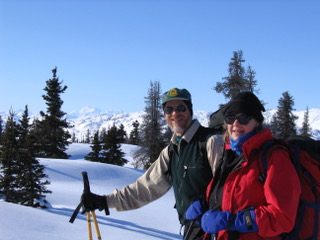
Terry and Julie cross country skiing
MH: Do you have any photos of yourself as a warden that you would like to donate? Artifacts?
TS: I don’t have many because I wasn’t much into taking photos.
MH: Is there anything I haven’t asked you that you think I should know about the Warden Service?
TS: No. maybe the story about Cyndi Smith and Julie Bauer (my spouse) out at Cyclone Cabin. https://parkwardenalumni.com/cyndi-smith/ – here’s Cyndi’s interview link.
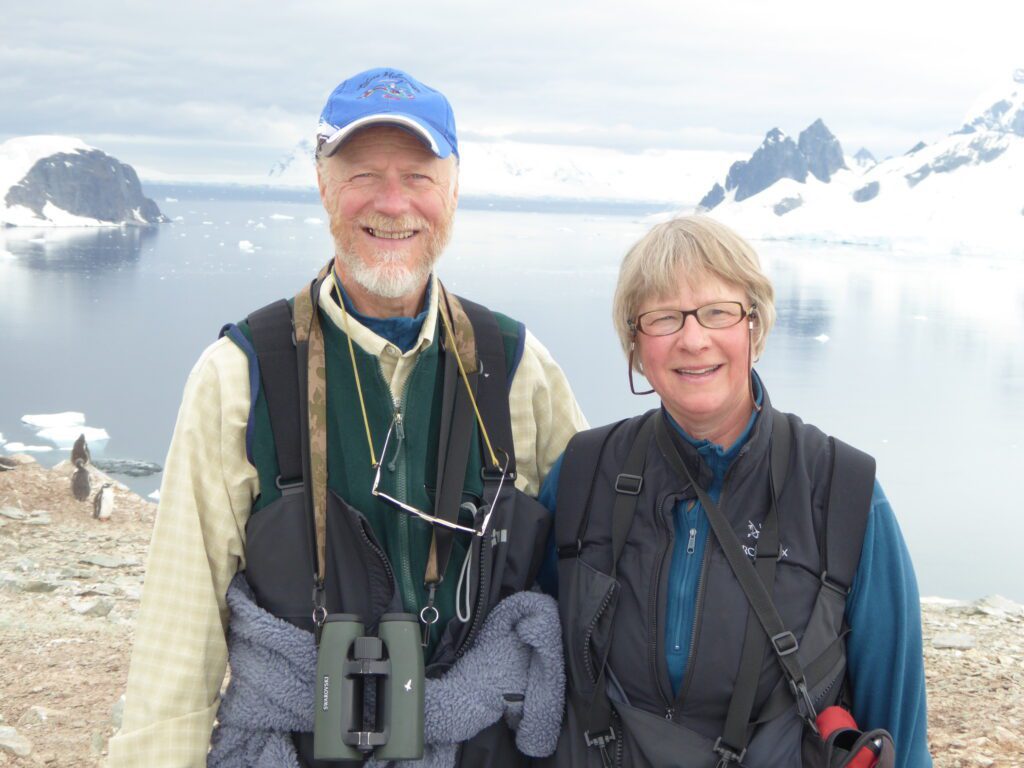
Terry and Julie Antarctic cruise 2017
MH: Anyone else to interview?
TS: not off hand no.
Monique Hunkeler first started working with Parks Canada in 1989 as Secretary to Banff National Park Finance Manager. She moved into a position as Dispatcher for the Banff Park Warden Service and later worked within Banff National Park and Town of Banff’s IT departments. She is experienced with the interviewing, transcription and archiving process the Park Warden Service Alumni Society.
